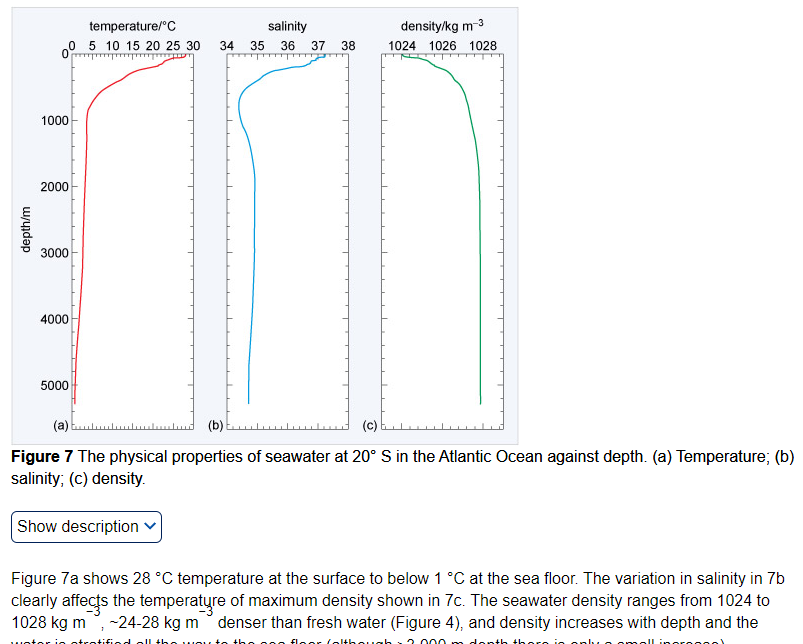-
Posts
3648 -
Joined
-
Days Won
19
Content Type
Profiles
Forums
Events
Everything posted by mistermack
-
Perhaps it's been reported for copyright violation or some such thing, rather than having malicious malware in it.
-
How to increase your IQ level ? How to improve your IQ ?
mistermack replied to cpu68's topic in Speculations
From memory, brain size is a very weak indicator of intelligence, but there is some slight correlation. There is an oft-quoted example of Anatole France, a huge star of French literature, who's brain size was only 1017gms, but it didn't stop him earning a Nobel Prize for literature. He's sometimes compared to Ivan Turgenev, another talented writer, who's brain was close to double that size, at 2,012 g. -
Yes, got it now thanks.
-
I'm missing something here, can anyone put me right? The Earth rotates 360 deg in 24 hours, whereas the Moon goes 360 deg round the Earth in one Lunar month, and yet the Moons orbit is apparently overriding the rotation of the Earth, which would generally tend to cause the shadow to go East-West with the sunlight. I realise there's something I'm not seeing.
-
-
Well, that's obvious, isn't it? If they are not touching, how can a force be applied in this example? But as pzkpfw said, f=ma, so as long a the force is not zero, the acceleration will not be zero, but as soon as the acceleration drops to zero, the force will be at zero. In other words, there will only be a force while the truck is being accelerated. (and vice versa)
-
This is just about as Irish as you can get. It's a song by Percy French, a fantastic and prolific song writer who died about 100 years ago. I can remember my mother singing this song years ago. I'd love to be in that pub drinking a guinness.
-
What are some cases (if any) of people coming back from the dead?
mistermack replied to murshid's topic in Medical Science
It's notoriously difficult to be sure that someone is actually dead. Although there are ways : -
Transforming the taste of foods with humming or singing?
mistermack replied to genio's topic in Speculations
Humming can have an effect on the brain. The action or sound can affect your reaction to the food through taste etc. So there's no reason why it shouldn't have an effect. It's a mental effect, nothing to do with energy. I saw a brief clip on a tv program a few days ago, where researchers recorded the sounds made by gorillas when they are eating, and in fact they were humming constantly. And I know people who hum as they eat. It's quiet, and not always obvious, and they probably don't know they are doing it. And I can't quote the details, but I vaguely remember someone doing a trial on the sweetness of food, humming and not humming, and there was a pronounced difference. I'm sure the actual sweetness isn't affected. It's the mental reaction to it. -
But as I said earlier, spacetime describes the effect but doesn't explain the mechanism. What is spacetime, and what mechanism causes mass and energy to curve it?
-
I'm actually explaining the problem I have with the concept of a particle mediating gravity. I realise that there is no accepted theory of gravity as yet, but the existence or otherwise of a graviton particle hasn't been determined, as far as I can tell.
-
Another question that bothers me, is how, if gravity is mediated by a particle, how does a black hole cause gravity? We know that nothing can exceed the speed of light, and that light cannot escape a black hole, so how does a particle like a graviton exit a black hole? Gravity travels at the speed of light, and the speed of light is not enough to escape the event horizon.
-
Which is every particle and every bit of energy in the universe, isn't it? But then there's a mechanism in which the path of least action is shaped, that needs explaining.
-
I get that, but that's describing the results of gravity, rather than explaining the mechanism.
-
What do posters think the mechanism of gravity is? I instinctively can't get my head around it being down to a particle, because of the distances involved. As I understand it (which is sure to be wrong) every massive object interacts with every other, through gravity. Which seems to require that every proton, neutron and all the rest are constantly emitting enough particles to constantly interact with every other particle in the Universe. How many particles does a proton emit per second, to interact constantly with every other massive particle in the Universe? And how much energy would that require, and where does it come from? For the other forces, acting over tiny distances it seems to be feasible, but gravity over billions of light years, in all diractions ? It's just mind boggling. (to me) I must be fundamentally getting it wrong somewhere, but please don't put me right with maths, it goes in through one ear, and straight out of the other. 🤪
-
Hey, we have a lot in common ! I have an imaginary Rolls Royce.
-
How to, Choose the right grease trap treatment?
mistermack replied to ambertcarrero's topic in Ecology and the Environment
I use recommend one of these, old fruit : https://www.gardening-naturally.com/blog/why-do-i-need-to-grease-band-my-trees.html -
Since it starts ok, I would just let it warm up, and then jam the choke open. You could rig up a cable to do it manually.
-
There was a moral free market 700 years before Islam. Buyer and seller just agree a deal. Simple.
-
Is there any chilling effect when you reduce the pressure on a liquid? I've never heard of it, but you would think that there must be some, even if it's tiny. I'm not suggesting it would be a relevant amount, but I just wondered if there is any effect at all. ( I did have a quick google, but didn't see anything relevant )
-
-
What's today's motive, of going to the Moon? The first program was understandable, it was a first, and there was a huge amount to learn. But what's the motive today? Especially when automation has come so far, and information technology is so advanced. Putting a man back on the Moon isn't going to tell us much new stuff, that automation wouldn't. I have a feeling it's political. The Americans are worried that the Chinese might claim the Moon in the same way they're trying to claim the South China Sea. Another possibility is that, now that they know that there's lots of water on the Moon, they are looking on it as a source of rocket fuel, by splitting water using solar power. You make your rocket here on Earth, giving it just enough fuel to get to Moon orbit. Then you refuel it from a tanker of fuel produced on the Moon. That would give you plenty of scope to get to Mars and back, without having to expend vast amounts of energy lifting fuel up out of Earth's gravity well. Lifting fuel off the Moon wouldn't take much energy because of it's low gravity and near zero atmosphere.
-
One surpising fact that I've read, after starting this thread, is that human consumption of aquaculture products is now getting close to equal with wild-caught fish etc. https://www.fao.org/3/ca9229en/online/ca9229en.html#chapter-1_1 I did wonder what the Chinese and Norwegians etc were doing with the Krill that they were catching in the South Atlantic. The explanation seems to be that they are mainly using it as fish food. The trend is for more and more aquaculture, and smaller and smaller wild fish. I like mackerel, one of my favourites, but I won't buy small ones, but that seems to be all there is these days. I haven't seen a decent size mackerel on a supermarket slab for years. I think we're heading for a time when wild fish will be very rare, and all you can buy will be farmed stuff. That's part of the reason that ocean fertilization appeals to me. It would take the pressure off wild stocks, and indeed, it would add to wild stocks, because the increased production would tend to migrate, whatever was not caught by onsite fisheries. Maybe stationing the aquaculture in stategic spots in ocean deserts would have a beneficial effect. All of the waste products could slowly spread into non-productive seas, causing blooms.
-
If you remove the compression effect, then the relevant difference in density is just caused by the difference in temperature, from surface to ocean floor. (assuming equal salinity). The density of seawater at different temperatures is easily measured and widely known. "Seawater density increases from 1.0240 g/cm3 at 20°C to 1.0273 g/cm3 at 0°C at a constant salinity." https://w3.ric.edu/faculty/PSCI103/Seawater/Seawater_notes.htm#:~:text=Seawater density increases from 1.0240,surface to bottom of ocean. Even if you ignore compression, and just do an evelope style calculation, the effect of greater density in the tube doesn't look like a game changer. If you take the figures from the Open University, of 1024 to 1028 range, then the average extra density in the tube is 2kg per m3 over the whole length of the tube. If you take a tube of 1 sq meter cross section, then 1 meter weighs 2kg more on average than the surrounding water. So for a tube 1,000 metres long, the extra weight of water in it when pumping would be 2,000 kg. Or two metric tons. So your propeller would need to provide 2 tonnes of thrust, on top of what it takes to overcome friction, for a tube of that size. A little bit less, using the 1.0273 figure above. While it's not insignificant, I don't think that's a game changer. It's obviously not for the Hawaii experiment. And as stated, that cold water can be used at the surface to generate electricity, maybe a significant proportion of what's needed to power the pump.
-
This is from the UK's Open University on density : They clearly state a range from 1024 to 1028. And you've ignored, as he did, what I pointed out about compression due to pressure, and that is that as the water rises up the tube, it will expand as the pressure drops, and it's compression at any point will be identical to the water outside the tube, so the effect of compression for pumping purposes will be nil. That's an example of what I meant, when I said that he ignored specifics. The way is open to you to correct me, if that point is wrong, or to agree if it's right. But ignoring it is not great for a supposedly scientific debate. The people who ARE pumping water daily from the depths, at the experimental OTEC plant in Hawaii don't cite water density as a main problem. They don't even mention it. It's more a trade off between pumping velocity against heat gain in the pipes. Thinner pipes at higher velocity gain less heat but incur more friction. But they quote costs per unit generated at about 20c, which used to be much higher than fossil fuel costs, but after the latest rises, the gap must have closed quite a lot. Although of course, they are now paying more for their own grid power too. I would like to see some sort of breakdown of their figures. Basically, how much electricity they generate, against how much they use for pumping. They say that they are feeding power into the grid, which doesn't seem very logical, if they are taking power from the grid for the pumps. But maybe there's an engineering reason for that. They say that much bigger units are planned, so the economics can't be too awful. https://www.eia.gov/energyexplained/hydropower/ocean-thermal-energy-conversion.php




